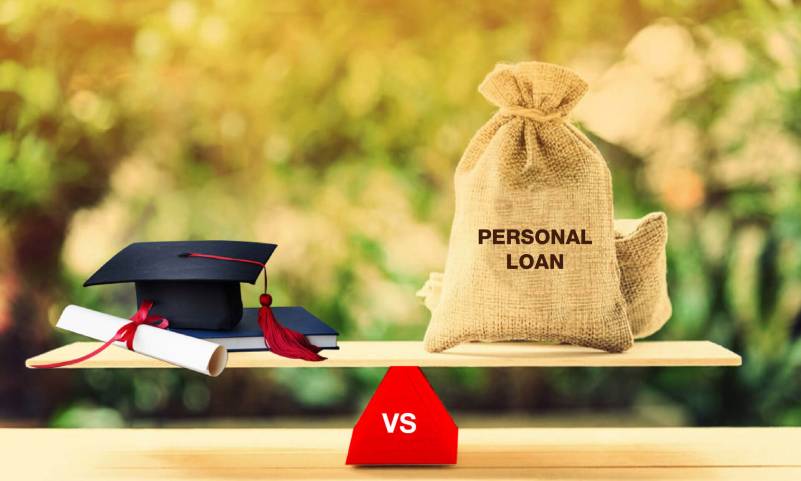In the realm of higher education financing, students often find themselves at a crossroads when deciding between a personal loan and an education loan. Both options offer distinct advantages, but understanding the nuances can lead to better financial decisions for aspiring scholars.
When it comes to funding your academic pursuits, a personal loan might seem like an attractive choice. These loans provide flexibility, allowing you to allocate funds according to your needs. Whether it’s tuition fees, accommodation, or study materials, a personal loan provides a versatile financial solution. However, it’s important to note that personal loans generally come with higher interest rates, which could translate to a heavier financial burden in the long run.
Education loans, on the other hand, are specifically tailored for students. These loans often come with lower interest rates compared to personal loans, making them a more affordable option in the long term. Financial institutions understand the value of education and aim to support students by offering more favorable terms. Moreover, education loans typically have a moratorium period, allowing students to focus on their studies before commencing repayment.
Choosing Wisely: Factors to Consider
Interest Rates and Repayment Periods
When delving into the world of education financing, interest rates play a pivotal role. Personal loans usually carry higher interest rates due to their unsecured nature. This could mean that the overall amount repaid might be significantly more than the borrowed sum. Education loans, however, offer lower interest rates, making them an economical option for students. Furthermore, education loans often have longer repayment periods, which reduces the monthly installment burden.
Loan Moratorium and Grace Periods
One of the standout features of education loans is the moratorium period. This grace period extends beyond graduation and allows students time to secure a job before repayment kicks in. This alleviates immediate financial stress and gives graduates the chance to settle into their professional lives without the added pressure of loan repayment.
Purpose-Oriented Financing
While personal loans offer flexibility in fund utilization, education loans are designed with a clear purpose: funding education. This focused approach ensures that the borrowed funds are directed toward academic expenses, preventing any temptation to divert them elsewhere. Education loans often cover a wide range of costs, including tuition fees, travel, accommodation, and study materials.
Credit Score Implications
Opting for a personal loan could impact your credit score more significantly than an education loan. The higher interest rates of personal loans might result in missed payments or financial strain, affecting your creditworthiness. Education loans, with their friendlier terms, can help students build credit in a more controlled manner.
In Conclusion
Choosing between a personal loan and an education loan requires a thorough understanding of your financial circumstances and academic goals. While personal loans offer flexibility, education loans provide a structured approach to financing your studies. Remember to carefully consider interest rates, repayment periods, and your long-term financial well-being before making a decision. With the right choice, you can embark on your educational journey without the weight of financial stress holding you back.























